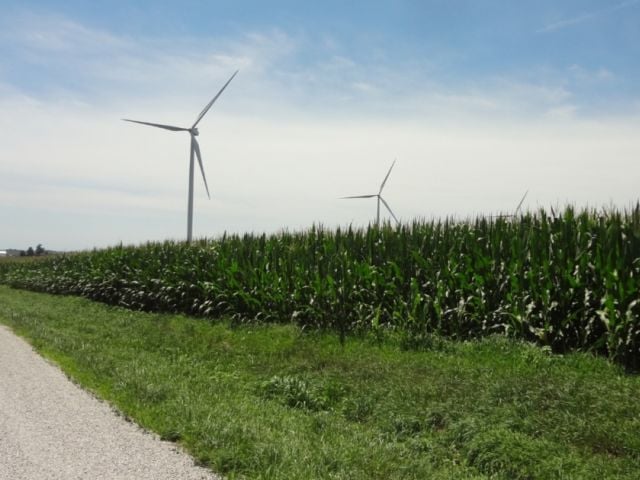
The Pineland Sands is a 770-square-mile area in northern Minnesota, home to globally threatened jack pine forests and abundant wetlands. The entire region is underlain by a critical, shallow and highly vulnerable drinking water aquifer, which lies just a few feet beneath sandy surface soils. The Pineland Sands also contains the headwaters of the Mississippi River. Chemicals and fertilizers that seep into the water in this region fuel the Gulf of Mexico “dead zone,” which annually averages 5,770 square miles.
For 50 years, R.D. Offutt Farms, or RDO, has been clear-cutting pine forests in the Pineland Sands region of Minnesota to expand its industrial-scale irrigated potato-growing operations. The company has poisoned local drinking water wells and water resources with nitrates and used helicopters to relentlessly spray toxic chemicals linked to cancer and bee die-offs.
It’s far past time for RDO, a $2.5 billion per year agribusiness, to face responsibility for decades of environmental and human devastation. Minnesota state agencies must put an end to RDO’s evasion of environmental laws and stand up for public health, indigenous rights and the land, water and habitat resources in the Pineland Sands.

A coalition of local community members, activists, scientists, legal experts, tribal representatives and environmental groups have banded together to ensure RDO’s relentless pollution of Pineland Sands communities and resources does not continue. The coalition includes Honor the Earth, Minnesota Well Owners Organization, Northern Water Alliance, Toxic Taters, EWG, Pollinator Stewardship Council, agricultural experts and retired and retired state agency officials.
Here’s what some coalition members had to say about the campaign.

Winona LaDuke, Honor the Earth
This is the same water our ancestors drank from, these rivers and lakes. We understand water is life and will continue to stand with our relatives and friends to protect this water.

Mike Tauber, Northern Water Alliance
For decades, small organizations like ours have come up against the stonewall of collusion that industry and regulatory agency management construct to defy state law, public trust and commonsense defense of human health and natural resources. RDO’s deforestation, combined with the intensive chemical use and irrigation, has led to unacceptable, widespread contamination of soil, water and air.

Evelyn Bellanger, a member of the Ojibwe Nation from Pine Point, Minn.
We have to wake up to the destruction and contamination of the Earth, which provides all the essentials to our lives. Farming for potatoes and other food production can be done without chemicals, as it was hundreds of years ago. It’s time for RDO to change.

Jeffrey S. Broberg, a state-licensed professional geologist and director of Minnesota Well Owners Organization
After RDO clears more of Minnesota’s native jack pines, their farmers view the sandy soil and shallow groundwater as a free tool to extract a profit, rushing to install big wells to irrigate industrial-scale commodities like potatoes and corn. The local community pays the price in polluted water and increased costs while RDO, their potato farmers, lawmakers and the Department of Natural Resources don’t seem to care.
A good start to reverse RDO’s decades of destruction would be for DNR to cease issuing irrigation permits until a thorough environmental review, considering alternatives and mitigation for water depletion and pollution, is completed. If wells are contaminated, RDO farmers must pay for damages. I encourage anyone concerned to reconsider buying food from major RDO french fry buyer McDonald’s Corp., to send a message that the health of local communities matters.

The coalition is currently appealing DNR’s legal decision not to order an Environmental Impact Statement review of RDO’s existing and expanding environmental harms in the Pineland Sands.
Read our briefs here and hear our oral argument here.
EWG Brief
EWG Reply Brief
Oral Argument
Honor the Earth and the Pine Point Tribal Community on the White Earth Reservation, the Pollinator Stewardship Council, senior retired agency officials, and farmers and agricultural experts also filed amicus briefs in support of our case.
Read their amicus briefs here:
Farmers and Agricultural Experts
The Pollinator Stewardship Council
Honor the Earth and the Pine Point Tribal Community
Senior Retired Agency Officials

Minnesota Pollution Control Agency’s Straight River Study, showing fertilizer contamination 100 times higher than in areas not harmed by industrial potato farming:
DNR’s internal emails documenting cancer risk, showing the agency lied regarding potential health impacts in its final record of decision:
Past DNR comments detailing severe risks to surface water, aquifers and air from RDO’s practices:

George Kraft, Ph.D., an independent hydrologist specializing in assessing groundwater pollution from irrigated farming in sandy soils, prepared an expert report supporting our case against R.D. Offutt Farms. Kraft demonstrates that groundwater nitrate contamination double to quadruple Safe Drinking Water Act limits will likely occur at R.D. Offutt Farms’ newest proposed irrigation site.
Minnesota Legislator Defends Potato Giant
Giant Potato Grower Threatens Tribal Land
Neighbor’s Plea to Potato Giant
The Smoking Spud
National Potato Giant Uses Obscure Leasing Scheme

"MN Court of Appeals hears arguments in Pineland Sands case"
Wadena Pioneer Journal, 3/5/2021
"Small Farmers Challenge Conventional Agriculture in Pineland Sands"
MPR News, 9/10/2020
"Water Wars: Can a Sebeka Farmer Grow Potatoes in the Sandy Soils of Central Minnesota?"
MinnPost, 7/15/2020
"Potato Irrigation Project in Minnesota's Pineland Sands Area Faces Another Challenge"
Minneapolis Star Tribune, 7/8/2020
"DNR: No Impact Study Needed for Potato Irrigation Project in Minnesota's Pineland Sands Area"
Minneapolis Star Tribune, 6/18/2020
For more information, contact Don Carr in the EWG Midwest office:
[email protected]
111 Third Avenue South
Suite 240
Minneapolis, MN 55401
(612) 435-8280
Photos courtesy of Brianna Crowley, Mike Tauber, Jamie Konopacky and Shutterstock.com.



